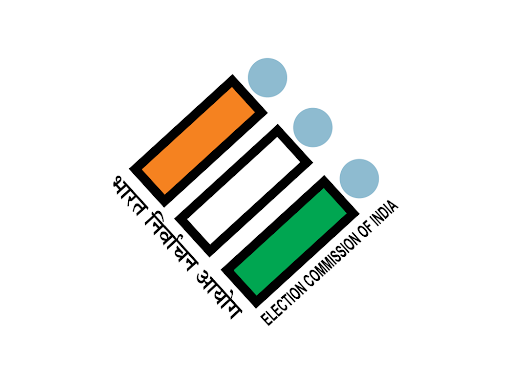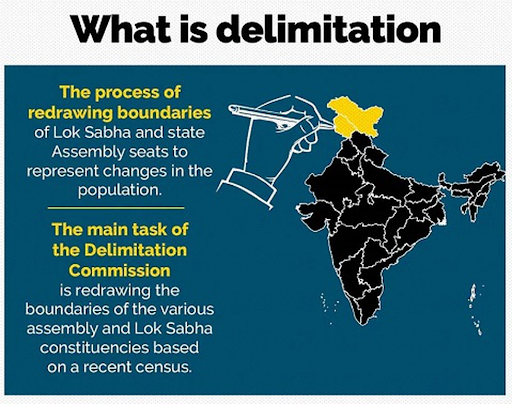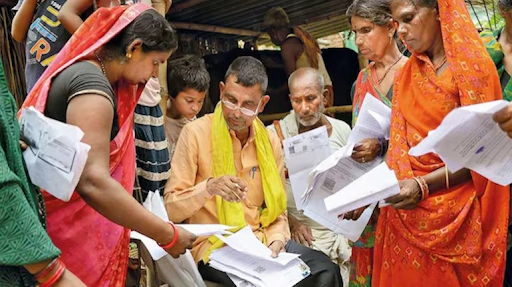



The Election Commission of India allocates fair broadcast time on Doordarshan and All India Radio to recognized parties, based on performance, ensuring balanced voter access. Rooted in the Representation of the People Act, 1951, this upholds fairness, equality, and democratic principles.

Copyright infringement not intended
Picture Courtesy: NEWSONAIR
The Election Commission of India (ECI) announced free airtime for political parties on Doordarshan and All India Radio during the Bihar Assembly Elections 2025.
|
Read all about: Why Need Electoral Reform in India |
The ECI issued directives under Section 39A of the Representation of the People Act, 1951, on broadcast and telecast time allocation on Doordarshan and AIR for recognized political parties in the upcoming 2025 Bihar Legislative Assembly General Election.
Digital Time Vouchers: All eligible political parties have received Digital Time Vouchers via an IT platform for the Legislative Assembly elections.
Free Broadcasting Facilities: A base time of 45 minutes of free broadcasting and telecasting has been allotted to each party on both Doordarshan and All India Radio.
Additional Time Allocation: Political parties are also granted additional time based on their performance in the previous Bihar Assembly Election.
Submission Requirements: Parties are mandated to submit transcripts and recordings in advance.
Panel Discussions and Debates: Prasar Bharati will hold panel discussions/debates for Bihar, airing on Doordarshan and All India Radio.
Constitutional Mandate: It derives its authority from Part XV (Articles 324-329) of the Constitution.
Article 324 vests the "superintendence, direction, and control of elections" in the ECI.
Establishment: On January 25, 1950, celebrated as National Voters' Day.
The ECI administers elections for:
It is not concerned with elections to Panchayats and Municipalities; a separate State Election Commission manages these local body elections.
Evolution: Originally a single-member body, it became a multi-member body after the Election Commissioner Amendment Act, 1989.
Current Composition: It consists of a Chief Election Commissioner (CEC) and two Election Commissioners (ECs).
Appointment: The President appoints the CEC and ECs. The Supreme Court's judgment in Anoop Baranwal vs Union of India (2023), dictates that appointments are made on the advice of a Committee comprising:
Note: The Supreme Court judgment included the Chief Justice of India, but the Chief Election Commissioner and Other Election Commissioners (Appointment, Conditions of Service and Term of Office) Act, 2023, replaced the CJI with a Union Cabinet Minister.
Tenure: They hold office for a fixed tenure of six years or until they attain the age of 65 years, whichever is earlier.
Rank and Salary: Their salary and conditions of service are equivalent to those of a Supreme Court Judge.
Delimitation of Constituencies: It determines the territorial areas of electoral constituencies throughout India.

Electoral Rolls Preparation: It prepares and periodically revises electoral rolls, ensuring all eligible voters are included and ineligible ones are removed.
Recognition of Political Parties: It grants recognition to political parties (National and State parties) and allots election symbols.
Dispute Resolution: It acts as a quasi-judicial body for arbitrating disputes related to election symbols and splits within political parties.
Model Code of Conduct (MCC): It enforces the MCC to ensure a level playing field during elections and prevent unfair practices.
Advisory Role: It advises the President and Governors on matters relating to the disqualification of members of Parliament and State Legislatures, respectively.
Conducting Elections: It directly conducts, controls, and supervises elections to the Lok Sabha, Rajya Sabha, State Legislative Assemblies, President, and Vice President.
Chief Election Commissioner (CEC): Can only be removed from office in the same manner and on the same grounds as a Judge of the Supreme Court (i.e., through a process of impeachment by Parliament).
Election Commissioners (ECs): Can only be removed from office on the recommendation of the CEC.
The Election Commission of India ensures free, fair, and transparent elections, safeguarding democracy and upholding citizens’ electoral rights consistently.
Source: NEWSONAIR
|
PRACTICE QUESTION Q. Discuss the challenges faced by the Election Commission in preventing the misuse of media during the electoral process. 150 words |
The ECI is an autonomous, permanent constitutional body responsible for administering the election processes in India. It was established on January 25, 1950, which is celebrated as National Voters' Day.
The ECI is a multi-member body that consists of one Chief Election Commissioner (CEC) and two Election Commissioners. Since 1993, decisions are made by a majority vote of the three commissioners.
The CEC can only be removed through a process of impeachment, similar to a Supreme Court Judge, requiring a two-thirds majority of Parliament. Other Election Commissioners can be removed by the President based on the CEC's recommendation.




© 2026 iasgyan. All right reserved